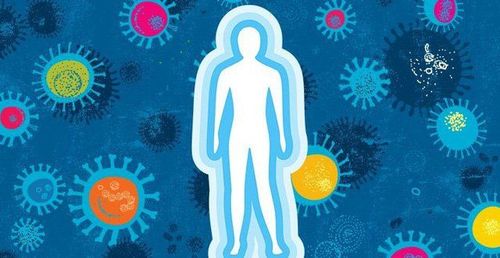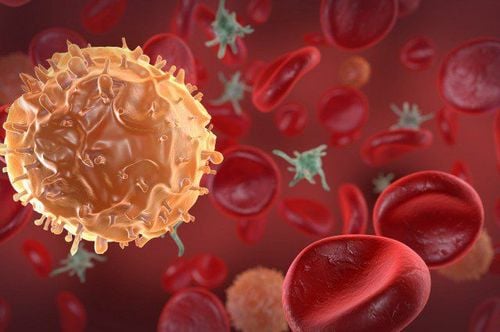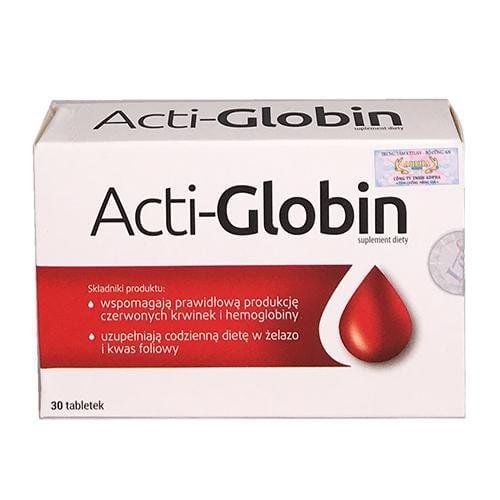This is an automatically translated article.
Vitamin A is an essential fat-soluble nutrient that plays an important role in the body. Vitamin A occurs naturally in foods and can also be obtained through synthetic supplements. This article discusses vitamin A, including its benefits, food sources, as well as the effects of deficiency and toxicity.1. What is Vitamin A?
Although vitamin A is often thought of as a single nutrient, it is actually the name of a group of fat-soluble compounds, including retinol, retinal, and retinyl esters.
There are two forms of vitamin A found in foods:
Metabolized vitamin A - retinol and retinyl ester - occurs only in animal products, such as milk, liver and fish. The second form is a precursor to vitamin A - carotenoids that are abundant in plant foods such as fruits, vegetables, and oils. To use them, your body must convert both of these forms of vitamin A into retinal and retinoic acid, the active forms of the vitamin.
Since vitamin A is fat-soluble, it is stored in body tissue for later use. Most of the vitamin A in the body is kept in the liver as retinyl esters.
These esters are then broken down to all-trans-retinol, which binds to a retinol binding protein (RBP). It then enters the bloodstream, at which point the body can use it.
2. The function of vitamin A in the body
Vitamin A is essential for health, they work to support cell growth, immune function, physical development and eyesight of the fetus.
Perhaps one of the most prominent functions of vitamin A is its role in vision and eye health. Retinal, the active form of vitamin A, combines with the protein opsin to form rhodopsin, a molecule needed for color perception and low-light vision.
It also helps protect and maintain the cornea (the outermost layer of the eye) and the conjunctiva (a thin membrane that covers the surface of the eye and the inside of the eyelid). In addition, vitamin A helps maintain mucosal tissues such as your skin, intestines, lungs, bladder, and inner ear.

Vitamin A trong cơ thể giúp chúng ta tăng cường chức năng miễn dịch
Furthermore, vitamin A supports the development of healthy skin cells, male and female reproductive organs and fetal development
3. Health benefits that Vitamin A brings
Vitamin A is an important nutrient that benefits health in many ways.
3.1. Strong Antioxidants Provitamin A carotenoids such as beta-carotene, alpha-carotene and beta-cryptoxanthin are precursors of vitamin A and have antioxidant properties.
Carotenoids fight free radicals, highly reactive molecules that can harm your body by creating oxidative stress. Oxidative stress has been linked to various chronic diseases such as diabetes, cancer, heart disease, and cognitive decline.
Diets high in carotenoids are associated with an increased risk of many of these diseases, such as heart disease, lung cancer, and diabetes.
3.2. Essential for eye health and preventing macular degeneration As mentioned above, vitamin A is essential for vision and eye health. Getting enough vitamin A into the diet helps protect against certain eye diseases, such as age-related macular degeneration (AMD).
Studies show that high blood levels of beta-carotene, alpha-carotene, and beta-cryptoxanthin can reduce your risk of AMD by up to 25%.
This protective effect is related to the antioxidant benefits of vitamin A precursors - carotenes, which help protect macular tissue by reducing levels of oxidative stress.
3.3. May protect against certain types of cancer Due to their antioxidant properties, carotene-rich fruits and vegetables may protect against certain types of cancer. For example, a study of 10,000 adults determined that smokers with high blood levels of alpha-carotene and beta-cryptoxanthin had a 46% and 61% lower risk of dying from lung cancer, respectively. people who don't smoke but have low levels of these nutrients.
Furthermore, test-tube studies demonstrate that retinoids can inhibit the growth of certain cancer cells, such as bladder cancer, breast cancer, and ovarian cancer.

Vitamin A có thể bảo vệ cơ thể chống lại một số loại ung thư
3.4. Vitamin A is important for fertility and fetal development Vitamin A is essential for both male and female reproduction because it plays a role in the development of sperm and eggs. It is also important for the health of the placenta, the growth and maintenance of fetal tissue, as well as fetal development. Therefore, vitamin A is indispensable for the health of the mother and fetus who are trying to get pregnant.
3.5. Vitamin A helps boost your immune system Vitamin A impacts immune health by stimulating responses that protect your body from disease and infection. Vitamin A is involved in making a number of cells, including B and T cells, that play a central role in immune responses that protect against disease.
Deficiency of this nutrient leads to increased levels of inflammatory molecules that reduce the response and function of the immune system
4. Vitamin A Deficiency
Although vitamin A deficiency is rare in developed countries such as the United States, it is common in developing countries, as these populations may have limited access to food sources of metabolites and precursors of vitamin A. vitamin A carotenoids.
Vitamin A deficiency can lead to serious health complications. According to WHO, vitamin A deficiency is the leading cause of preventable blindness in children worldwide. In addition, vitamin A deficiency also increases the severity and risk of death from infections such as measles and diarrhea.
In addition, vitamin A deficiency increases the risk of anemia and death in pregnant women and negatively impacts the fetus by slowing growth and development.
Less severe symptoms of vitamin A deficiency include skin problems like hyperkeratosis and acne. Certain groups such as premature infants, people with cystic fibrosis and pregnant or lactating women in the developing world are at increased risk for vitamin A deficiency.

Xuất hiện mụn trứng cá là triệu chứng thiếu vitamin A ít nghiêm trọng
5. Food sources of vitamin A
There are many food sources of both vitamin A and provitamin A in the carotene form. Vitamin A in its converted form is more easily absorbed and used by your body than plant-based sources of carotenoids.
Your body's ability to efficiently convert carotenoids, such as beta-carotene into active vitamin A depends on many factors, including genetics, diet, overall health, and medications.
For this reason, people following a plant-based diet, especially vegetarians, should be cautious about getting enough carotene-rich foods.
Foods with the highest vitamin A content are:
Egg Yolk Beef Liver Sausage Butter Cod Liver Oil Chicken Liver Salmon Cheddar Cheese Mackerel Foods high in provitamin A carotenoids such as beta-carotene include:
Sweet Potatoes Pumpkin Carrots Spinach Dandelion Leaves Cabbage Red Peppers Kale Parsely Squash

Rau bina chứa nhiều tiền vitamin A carotenoids
6. Toxicity and dosage recommendations for vitamin A
Just as vitamin A deficiency can have negative health effects, too much can be dangerous. The recommended daily intake (RDA) for vitamin A is 900 mcg and 700 mcg per day for men and women, respectively, which can be easily achieved by following a safe food regimen. However, it is important not to exceed the tolerable upper limit (UL) of 10,000 IU (3,000 mcg) for adults to prevent toxicity.
While it is possible to consume too much vitamin A that is made excessively through animal sources such as liver, toxicity is most commonly associated with supplementation and overtreatment with certain medications, such as such as isotretinoin.
Because vitamin A is fat-soluble, it is stored in your body and can build up to unhealthy levels over time. Taking too much vitamin A can lead to serious and possibly even fatal side effects if used in extremely high doses.
Acute vitamin A toxicity occurs over a short period of time when an excessively high dose of vitamin A is consumed, while chronic toxicity occurs when doses more than 10 times the RDA are taken over a longer period of time.
The most common side effects of chronic vitamin A toxicity commonly known as hypervitaminosis A, include:
Vision disturbances Joint and bone pain Poor appetite Nausea and vomiting Sun sensitivity Hair loss Pain head Dry skin Liver damage Jaundice Slow growth Decreased appetite Confusion
Although less common than chronic vitamin A toxicity, acute vitamin A toxicity is associated with more serious symptoms, including liver damage, increased cranial pressure, and even death. Furthermore, vitamin A toxicity can negatively affect maternal and fetal health, possibly leading to birth defects.
To avoid toxicity, avoid using high doses of vitamin A supplements. The maximum limit for vitamin A applies to food sources of vitamin A of animal origin, as well as vitamin A supplements. High intake of dietary carotenoids has not been associated with toxicity, although studies Research links beta-carotene supplements to an increased risk of lung cancer and heart disease in smokers. Since taking too much vitamin A can be harmful, consult your doctor before taking vitamin A supplements.
In a nutshell, Vitamin A is a fat-soluble nutrient important for immune function, eye health, reproduction, and fetal development. Vitamin A deficiency or excess can cause serious side effects. A healthy and balanced diet is a great way to provide your body with a healthy dose of vitamin A.
Please dial HOTLINE for more information or register for an appointment HERE. Download MyVinmec app to make appointments faster and to manage your bookings easily.
Reference source: healthline.com













